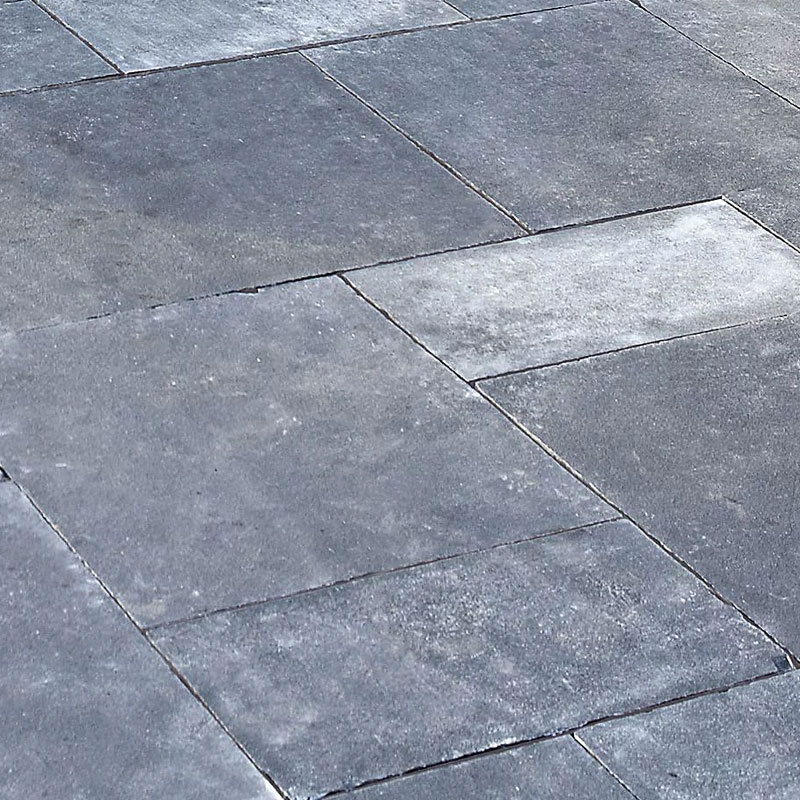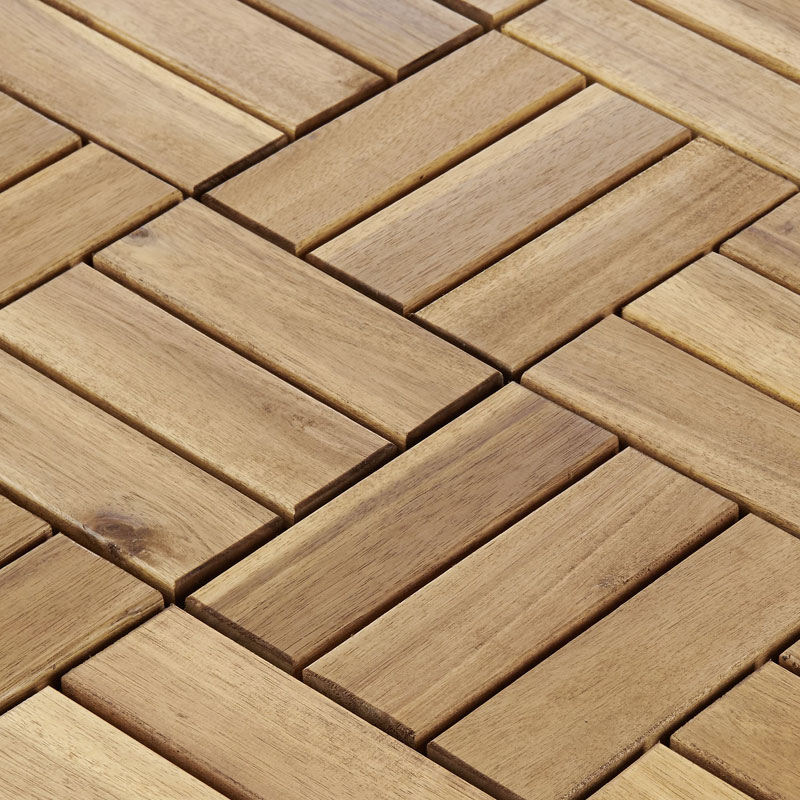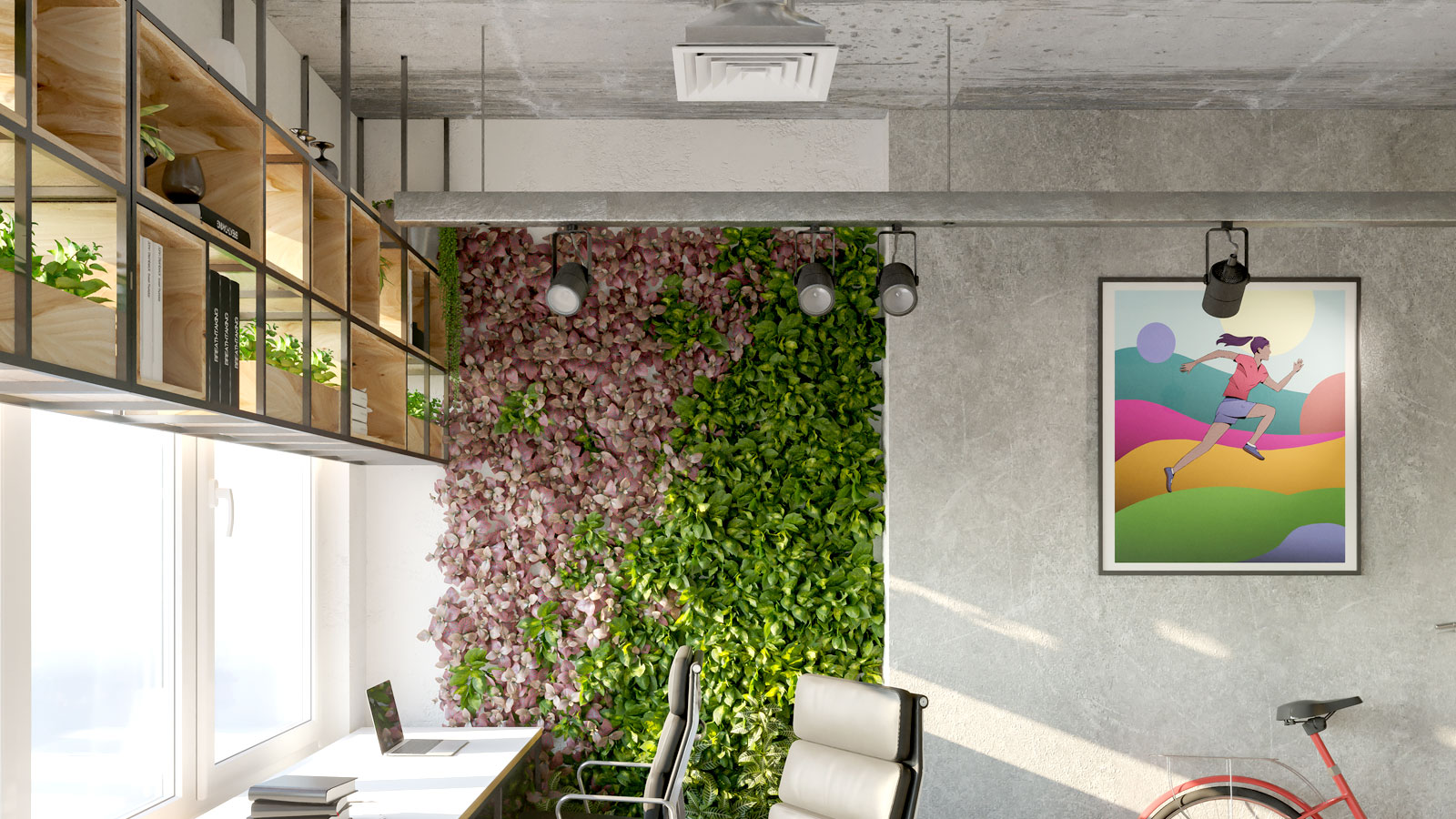Decking alternatives: 7 options to use instead of wood
Wooden decking is a popular choice, but what decking alternatives can take its place? Here we look at direct replacements, popular alternatives and options for those on a budget
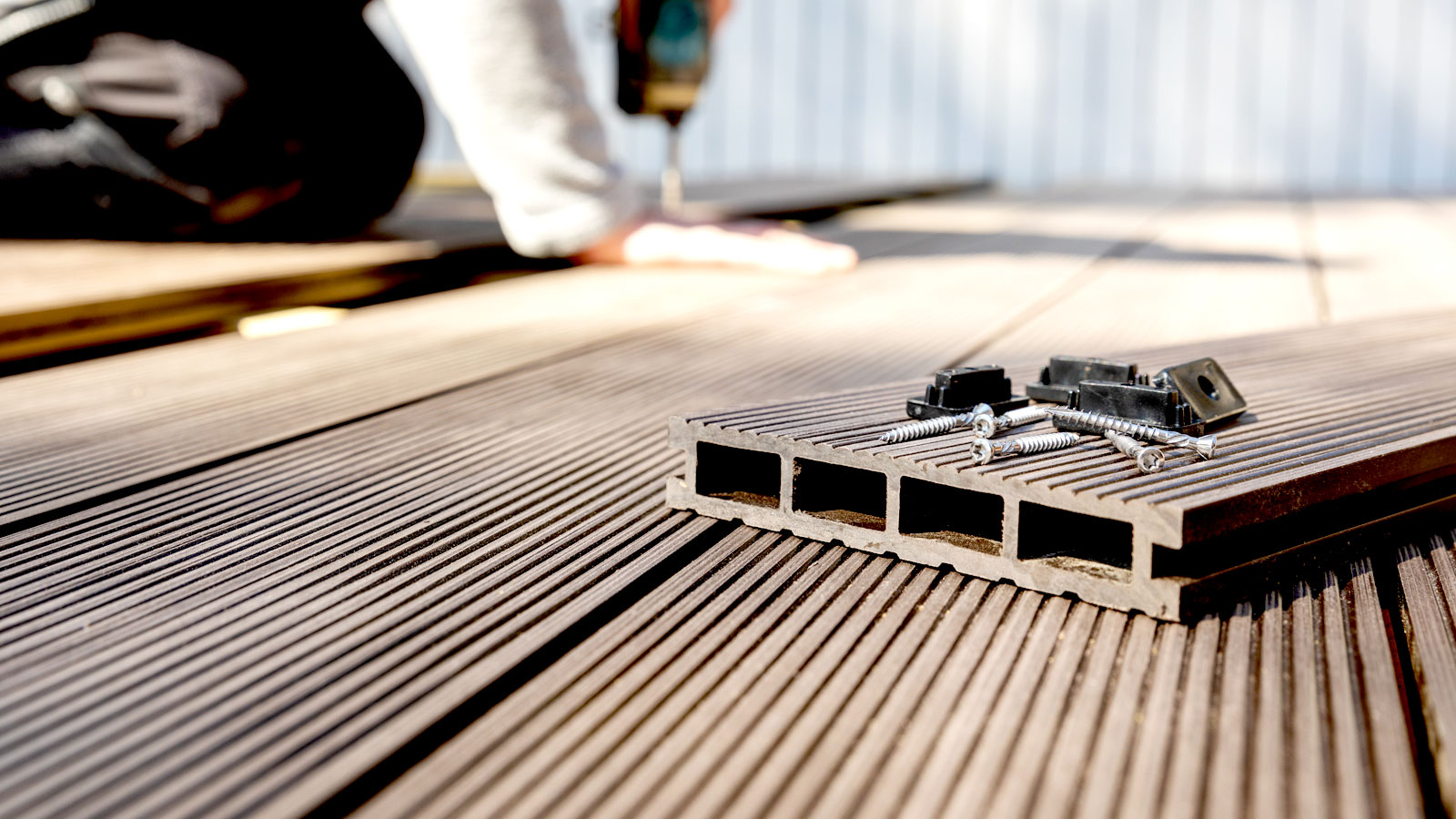
Decking alternatives give you a different option to wood - usually the most popular choice when it comes to garden decking ideas. But, if you’ve got an outdoor area you want to transform into a cosy seating spot you don’t just have to choose wood. There are a whole host of stand-ins that will give you a long lasting and attractive finish.
However, as a quality hardwood or composite decking are the best options when it comes to decking, these can be expensive. The good news is if you are on a budget there are some great substitutes to create a desirable outdoor space.
Decking alternatives don't have to break the bank
Mention the word decking and most people immediately think of timber or wooden decking that sits outside the back of your home. While using cheap wood is one on of the most common decking mistakes and should be avoided where possible, there are still other options.
Even decking itself comes in different formats, finishes and sizes meaning there are budget decking alternatives available. Along with other products that are cheaper and easier to install, we look at what's on the market to suit all scenarios and pockets.
Decking alternatives. What are the options?
1. Composite decking
Composite decking ideas are a a popular alternative to wood decking. Composite decking is typically made from wood and plastic fibres which gives it a more durable and easier to maintain finish than timber. It is ready to go and doesn’t need to be sanded, stained or painted and is insect and pest resistant.
The downside is that as one of our decking alternatives it is more expensive than wooden decking, but it will last for years and stay looking good with a lot less maintenance required.
2. Decking tiles
If you are looking for a quick-to-lay deck with a difference, then decking tiles are definitely worth considering. They are available in composite, wood and plastic finishes and interlock to create a surface that easily fits into any size area.
They come in various sizes and patterns, but are commonly laid at 90 degree angles to create a basketweave pattern.
The big bonus is that they can be laid directly onto a flat surface and don’t need a base, but if laying on grass or dirt a weed membrane is recommended.
As a bonus, they also require very little decking maintenance making them a strong contender in our list of decking alternatives.
3. Paving slabs
Patio ideas are a great alternative to wooden decking and there’s plenty of materials to choose from. Concrete paving slabs are the most economical alternative and can be obtained in different colours. You can also use them creatively in your garden paving ideas as it's not difficult to cut paving slabs to create unique or nonstandard patterns and designs.
As decking alternatives, patio slabs are hard wearing, durable, long-lasting and easy and cheap to replace should one break.
Natural stone and porcelain slabs are a more attractive and timeless addition to the garden if you're seriously weighing up a patio vs decking, and although they are hard-wearing and weather resistant, they will cost considerably more than concrete slabs and timber decking.
But if you want the luxurious feel that they bring, they are definitely a great alternative.
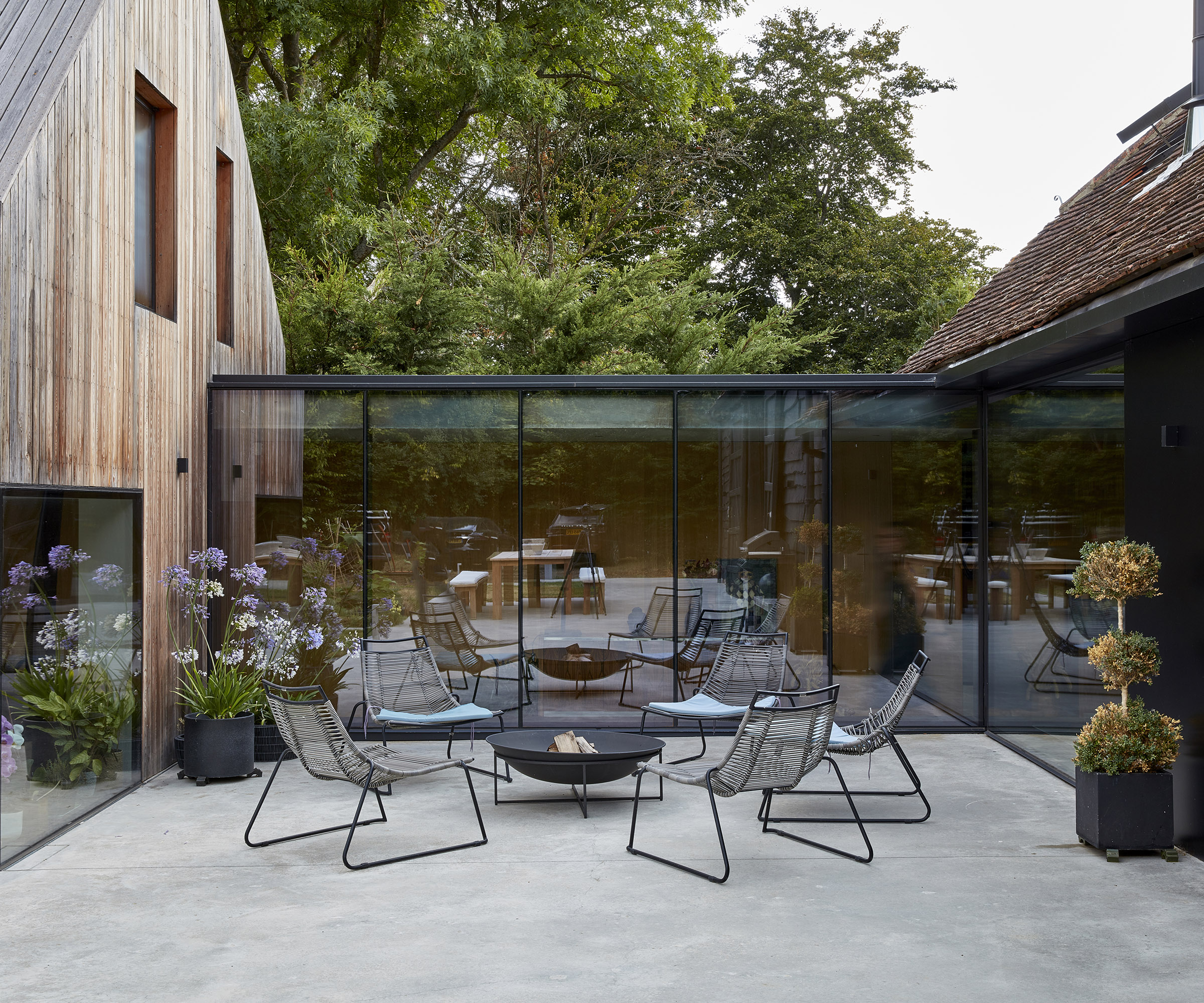
3 decking alternatives to transform your outdoor space
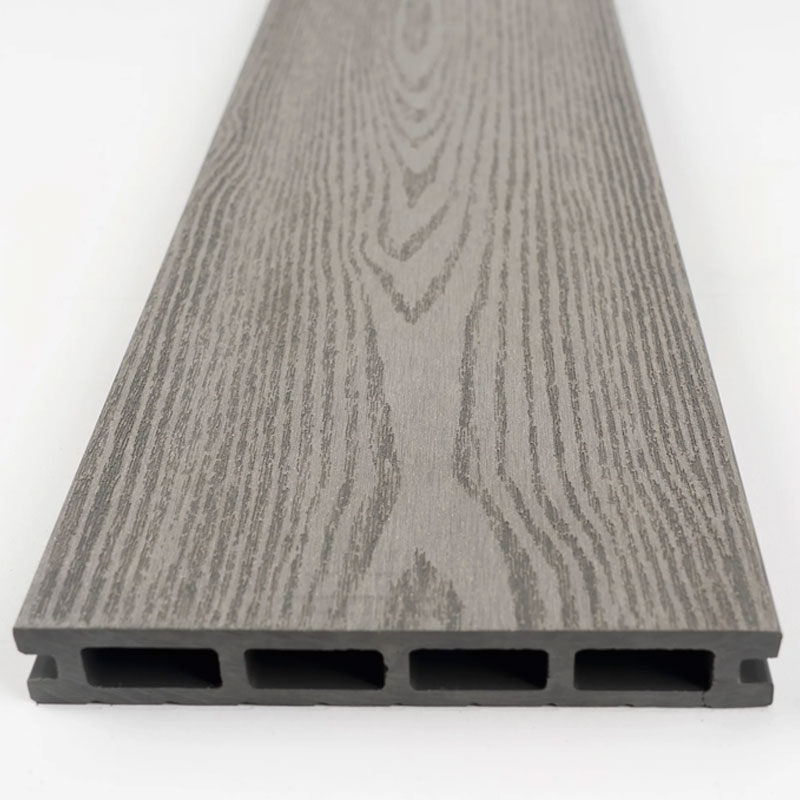
Contemporary grey budget friendly composite deck board that’s made from recycled plastic & wood and has a 10 year warranty
4. Pallet decking
This is a smart and eco-friendly way to reuse old wooden pallets – which you can often get for free or may have left over if you've been building an extension or renovating your home. As pallets come ready built, it’s simply a matter of laying them down, fixing them together and finishing.
It's important to note however that pallets typically have a rough finish, are not high quality wood and are not always consistent in size. But with the help of the right type of saw and a sander you will be able to get a good fit for your space and introduce a decent finish which you can stain or paint.
If you don't have any pallets, you can also check Facebook Marketplace, Gumtree or contact local companies to get cheap or free pallets.
5. Gravel
This may not have the kudos or aesthetic appeal of more traditional decking, but gravel is a quick and cost effective alternative and can be used for a variety of gravel garden ideas.
It is comparatively cheap to buy, quick to lay and there’s no need to invest in expensive tools. All you will need to do is lay down a weed control membrane, pour the gravel on top and spread out with a rake.
The beauty of gravel is that it is easy to maintain and keep clean. Wash down with a hose pipe and rake out to get an even flat surface. Keep any left over gravel and top-up any patches when needed.
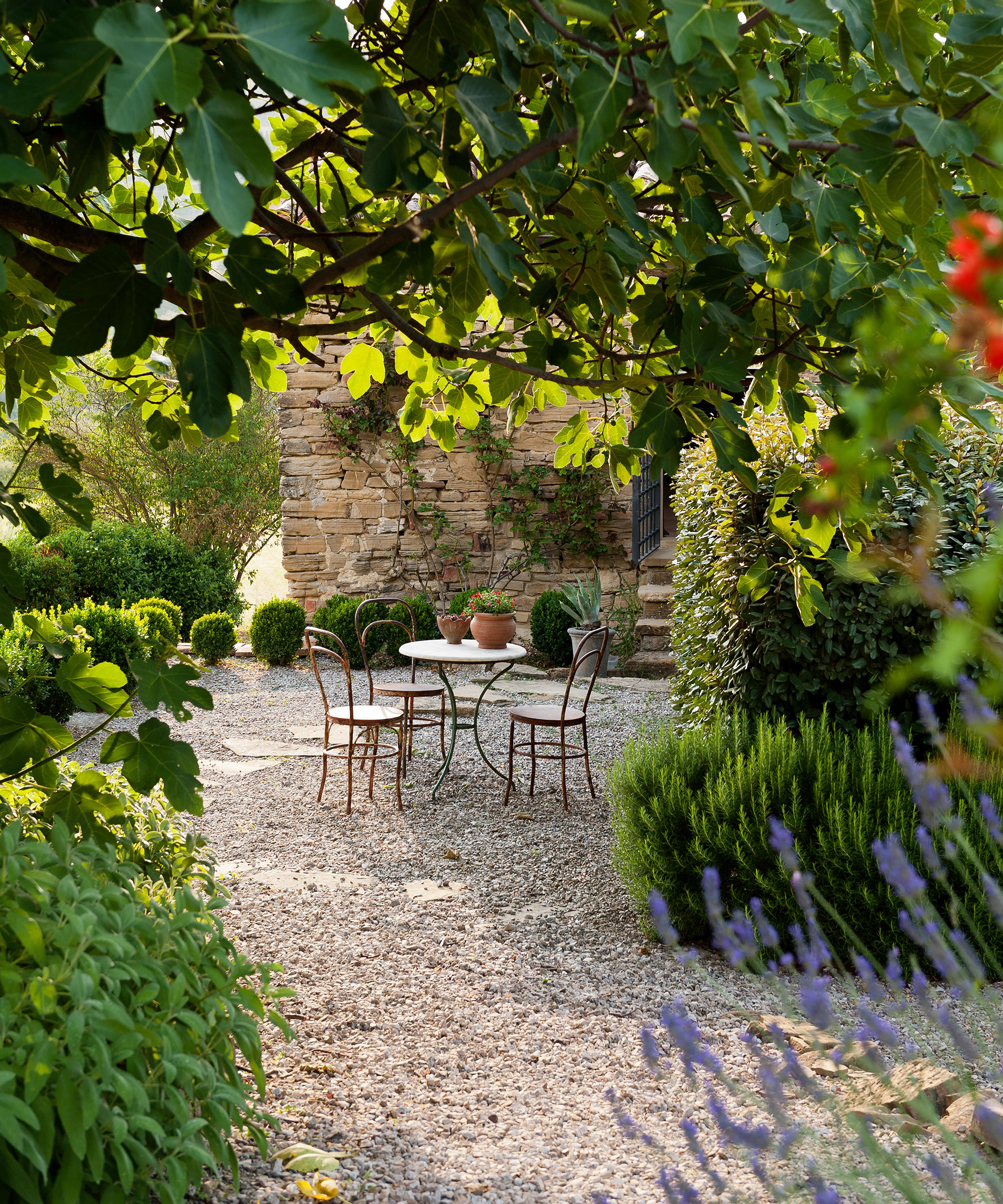
6. Bark chippings
For a quick, cheap and easy to lay decking alternative, you will be hard pushed to find anything better than bark chippings. You can purchase a bag of bark chippings like these Verve Dark Brown Large Bark chippings from B&Q for around £10-£15 with a coverage of 4m2. Three bags would give you enough for an area of 4m x 3m.
While eco-friendly, the downside to bark clippings is that they’re not as aesthetically pleasing as standard decking and not very permanent. Wind and feet will disturb and move the chippings around so they will need a lot of maintenance and replacement. And, when they get wet they take a while to dry out.
7. Self binding gravel
Self binding gravel is similar to standard gravel, but the gravel is typically smaller and combined with sand and clay particles to help it bind. This helps create a compact, solid surface and is often used on pathways to create a natural looking, hard-wearing finish.
It is not as aesthetically pleasing as timber decking, it is susceptible to weeds, but laying a weed membrane will help suppress them. And, it can produce dust when walked on which can transfer to shoes and clothing.
Decking alternatives FAQs
How do I get a wooden deck on a budget?
If you are on a budget but still want a wooden deck, work out what you can afford to buy and build to suit.
For example, if you have a budget of £300, you can afford to purchase around 18 of these Value Green Spruce Deck boards from B&Q plus timber joists, screws and weed membrane.
Work out how much space it will cover – in this case you will get a 1.8m x 2.1m (approximately a 6 x 7 foot) deck. Check out our small decking ideas to see how you can make the most of your small space.
It’s also worth shopping around to see if you can get your timber cheaper. Online retailers and local suppliers should be able to offer you a better deal than the more well-known home improvement stores.
If you are looking to undertake a full garden and hard landscaping project, check out our garden landscaping ideas for more inspiration. And once you’ve got your new decking installed, make sure you find out how to clean decking and follow our decking maintenance guides to keep your outdoor space in top condition.
Get the Homebuilding & Renovating Newsletter
Bring your dream home to life with expert advice, how to guides and design inspiration. Sign up for our newsletter and get two free tickets to a Homebuilding & Renovating Show near you.
Steve Jenkins is a freelance content creator with over two decades of experience working in digital and print and was previously the DIY content editor for Homebuilding & Renovating.
He is a keen DIYer with over 20 years of experience in transforming and renovating the many homes he has lived in. He specialises in painting and decorating, but has a wide range of skills gleaned from working in the building trade for around 10 years and spending time at night school learning how to plaster and plumb.
He has fitted kitchens, tiled bathrooms and kitchens, laid many floors, built partition walls, plastered walls, plumbed in bathrooms, worked on loft conversions and much more. And when he's not sure how to tackle a DIY project he has a wide network of friends – including plumbers, gas engineers, tilers, carpenters, painters and decorators, electricians and builders – in the trade to call upon.
